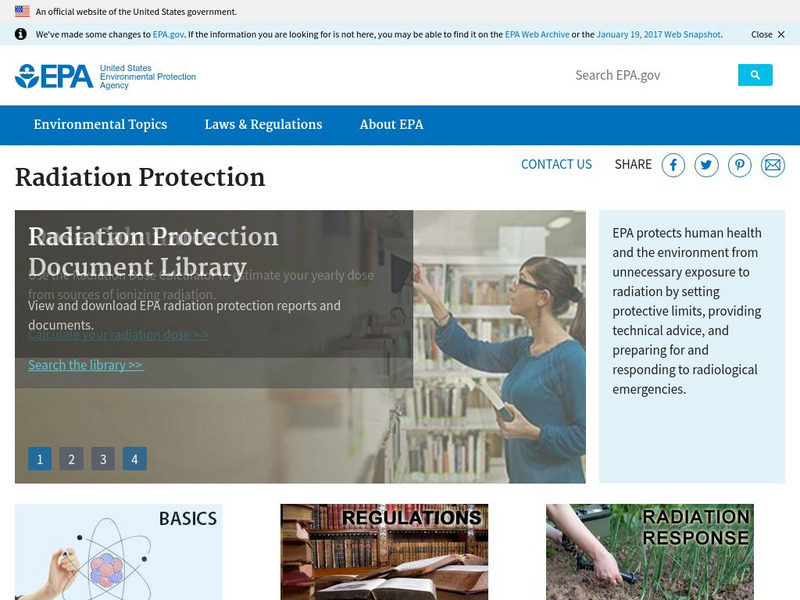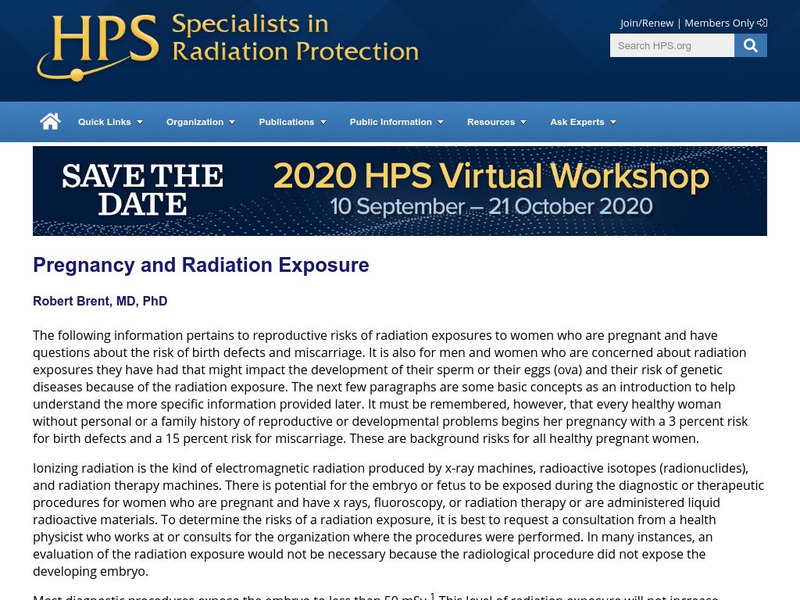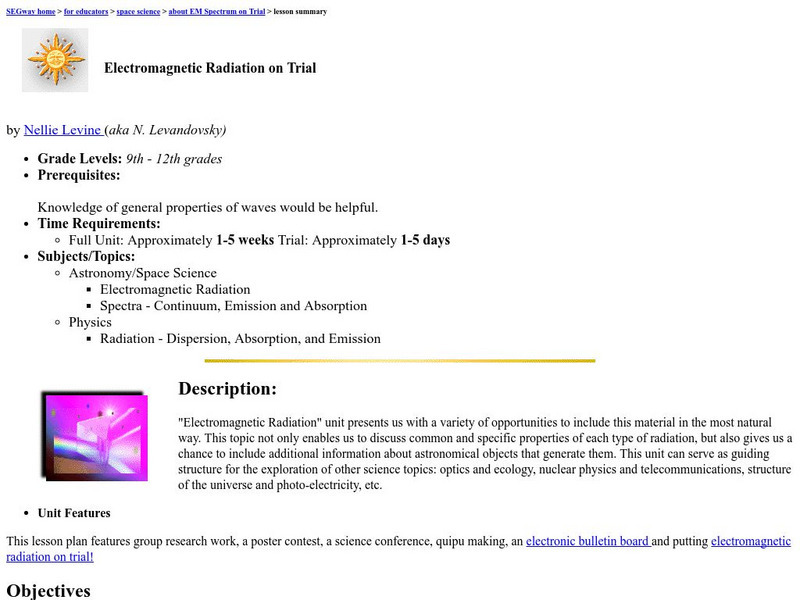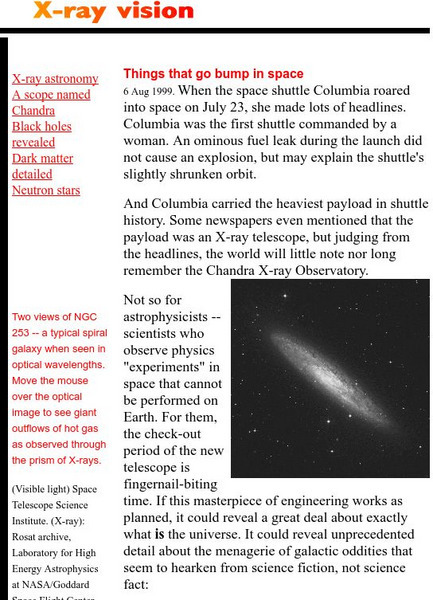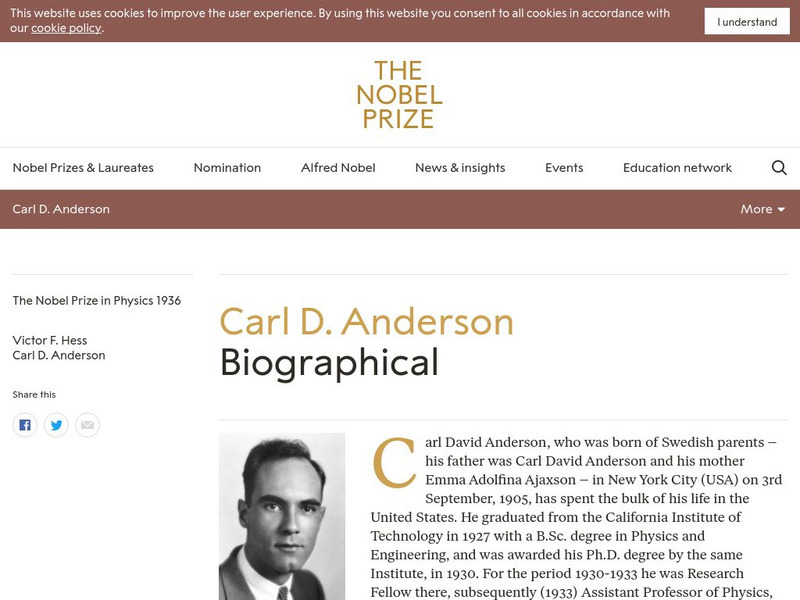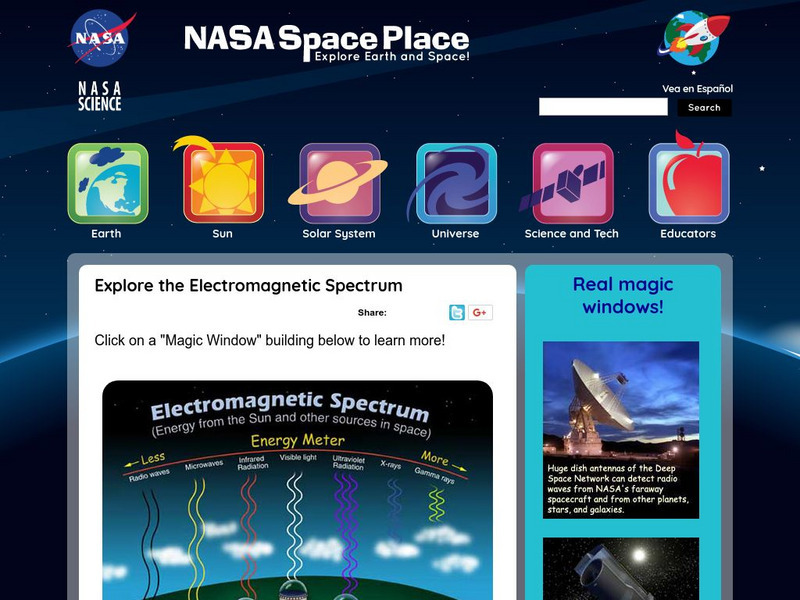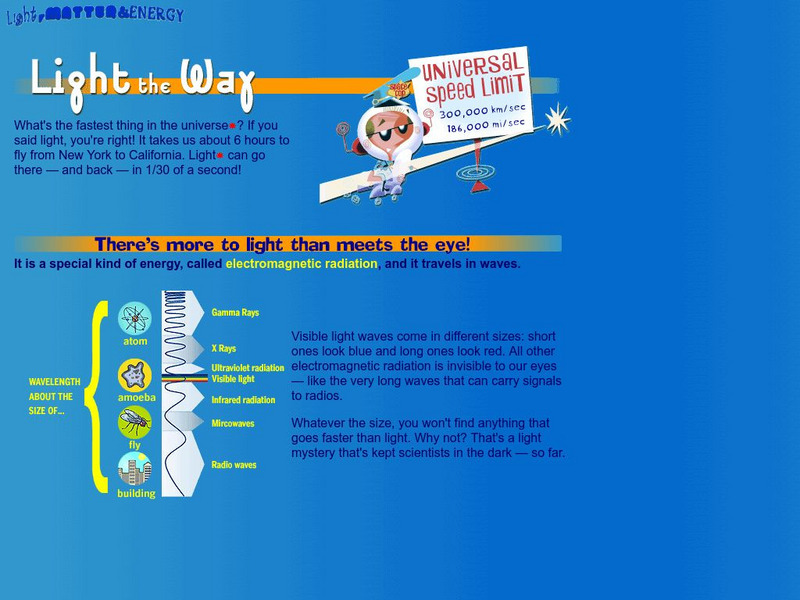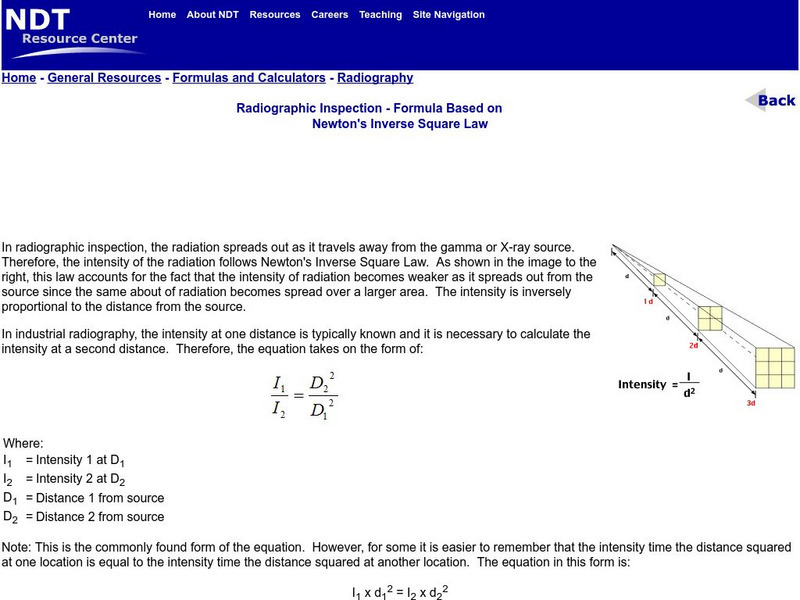University of Colorado
University of Colorado: Physics 2000: Einstein's Legacy: X Rays
An explanation of how X-ray machines work. An online activity in which a comparison is made between how the hand would be viewed with X-ray versus with visible light. An additional page explains the use of X-rays in CAT scan devices.
TED Talks
Ted: Ted Ed: Mysteries of Vernacular: X Ray
The story of the word X-Ray is one of great thinkers. French philosopher Rene Descartes isolated the letters X, Y and Z to stand for unknowns, and centuries later, Wilhelm Rontgen discovered the X-ray, using the X for the unknown nature...
University of Colorado
University of Colorado: Physics 2000: Cat Scans: Projecting Shadows
This page and the three pages which follow discuss how X-ray technology can be used to produce an image of the human body. Discussion is understandable and highly intriguing. Several interactive animations allow the visitor to explore...
US Environmental Protection Agency
Epa: Radiation Protection
Find out about the EPA's Radiation Protection Division, which aims to protect the nation's people and environment from harmful exposure to radiation.
BBC
Bbc: Gcse Bitesize: Radiation Treatment
X-rays, gamma rays and beta particles are all used in medicine to treat internal organs. X-rays are produced by firing electrons at a metal target and gamma rays are emitted by the nucleus of radioactive atoms. Gamma rays are used to...
NASA
Nasa: Imagine the Universe: The History of Gamma Ray Astronomy
This NASA article discusses the history of gamma-ray astronomy. Related resources.
Read Works
Read Works: Electromagnetic Radiation
[Free Registration/Login Required] An informational text about electromagnetic radiation and the effects it creates. A question sheet is available to help students build skills in reading comprehension.
NASA
Viewing the Violent Universe: What Are Gamma Rays?
The universe produces a broad range of light, only a fraction of which is visible to our eyes. Gamma rays are nonvisible light, which also includes x-rays, ultraviolet light, infrared radiation, and radio waves.
University of California
Center Science Edu.: Electromagnetic Radiation on Trial
Here is a 1-5 day unit on electromagnetic radiation that features a teacher guide and student activities with extensions.
University of California
U.c. Berkeley: Spectra From Space
View the entire spectrum of electromagnetic radiation and get information on telescopes especially designed to view different wavelengths of the spectrum.
University of Wisconsin
The Why Files: Things That Go Bump in Space
Contains an introduction to x-ray astronomy, describing how x-rays are being used by scientists to learn about the universe. Also contains links to sites describing black holes, dark matter, neutron stars, and how they are investigated...
Cosmo Learning
Cosmo Learning: Applied Science and Technology 210: Electrical Engineering
A collection of video lectures from a course that explores the application of electrical engineering topics. Webpage includes twenty-eight lectures from a professor at the University of California, Berkeley. Lectures vary in length and...
Nobel Media AB
The Nobel Prize: Antoine Henri Becquerel Biographical
Read about Becquerel's (1852-1908 CE) contributions to the world of science, which earned him The 1903 Nobel Prize in Physics. This detailed biography includes important dates as well as an overview of his world with radioactivity.
Careers New Zealand
Kiwicareers: Radiation Oncologist
KiwiCareers offers a very informative site about the duties of an oncologist. Even though it was written for a New Zealand audience, the principles are the same.
Nobel Media AB
The Nobel Prize: Carl D. Anderson Biographical
This site provides a brief article from The Nobel Foundation on the American Physicist, Carl David Anderson. The article overviews his education and involvement in radiation research and cosmic-ray studies, through which he discovered...
Nobel Media AB
The Nobel Prize: Wilhelm Conrad Rontgen Biographical
This biographical note on Wilhelm Conrad Rontgen describes his boyhood, upbringing, education, scientific work and accomplishments. Focuses on his studies of Xrays.
NASA
Nasa's the Space Place: A Trip to the Land of the Magic Windows
Explore the electromagnetic spectrum and learn about each type of energy on the spectrum.
American Museum of Natural History
American Museum of Natural History: O Logy: Light, Matter, Energy: Light the Way
What is electromagnetic radiation and how does it work? Review a captioned graphic that explains electromagnetic radiation and the visible and invisible types of radiation on the electromagnetic spectrum.
Famous Scientists
Famous Scientists: Maria Sklodowska Curie
Read about the life and scientific work of Marie Curie, possibly the most famous female scientist in history. In addition to providing biographical information, this page includes details on her scientific discoveries and her influence...
Other
American Institute of Physics: Marie Curie and the Science of Radioactivity
Resource provides an in-depth exhibit featuring Marie Curie and her contribution to the science of radioactivity.
Other
Nondestructive Testing Resource Center: Radiographic Inspection
This tutorial helps students learn about Radiographic Inspection through the concept of Newton's Inverse Square Law.
National Health Museum
Radioactivity: Historical Figures
A summary of the contributions of Wilhelm Roentgen, Antione Henri Becquerel, Marie Curie, and Ernest Rutherford on radioactivity.
NASA
Nasa: The Space Place: The Land of the Magic Windows
This is a site from NASA that contains an interesting and fun way to learn about the electromagnetic spectrum. Kate receives a strange riddle from her grandfather. Find out what it says and go through the gateway to the Land of the Magic...


